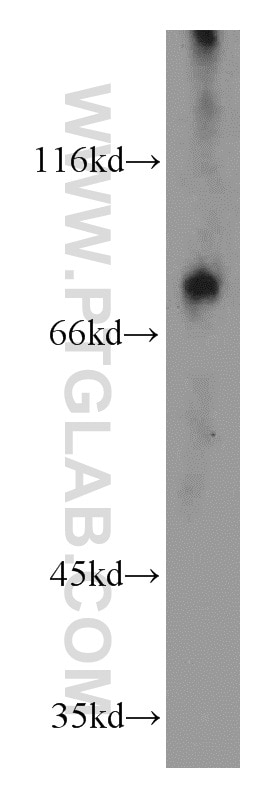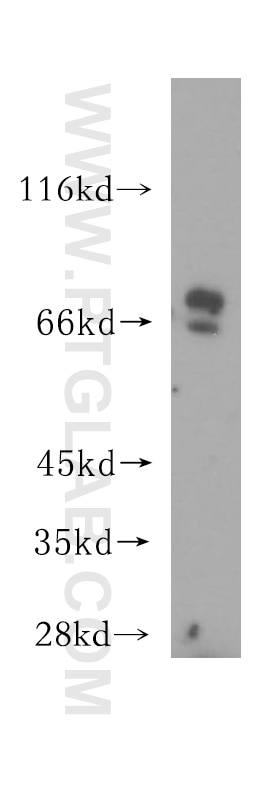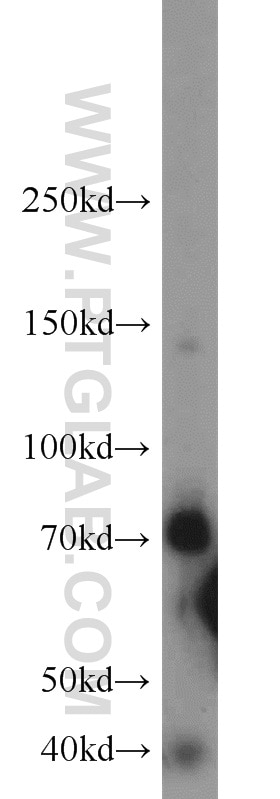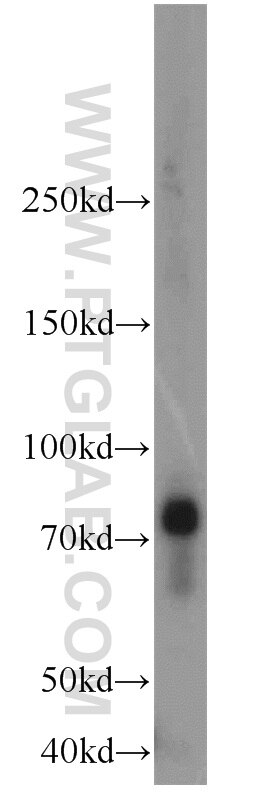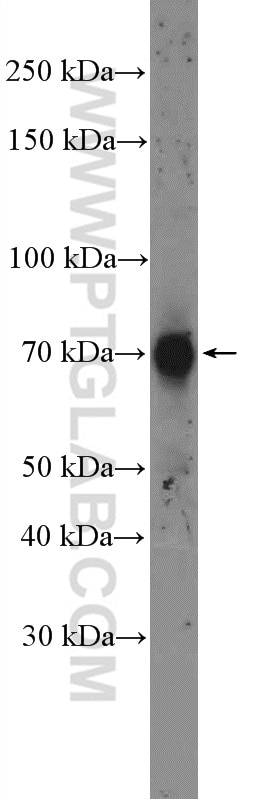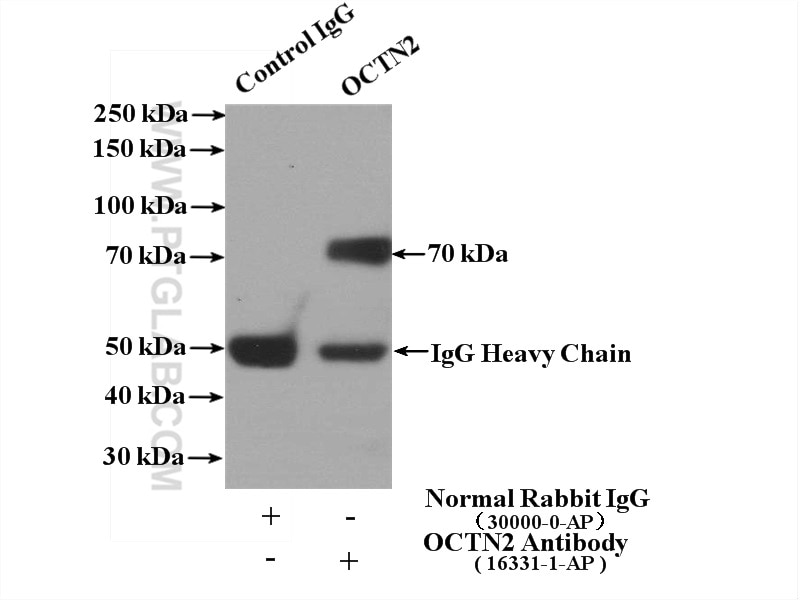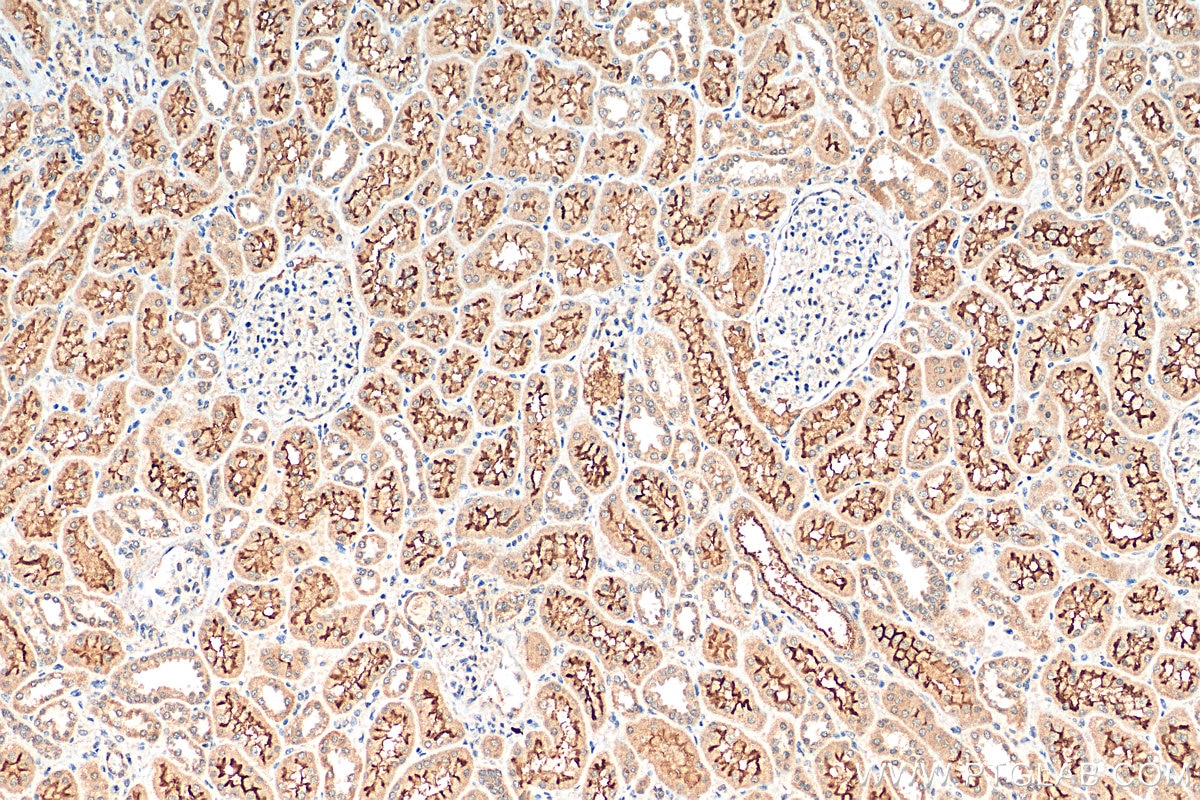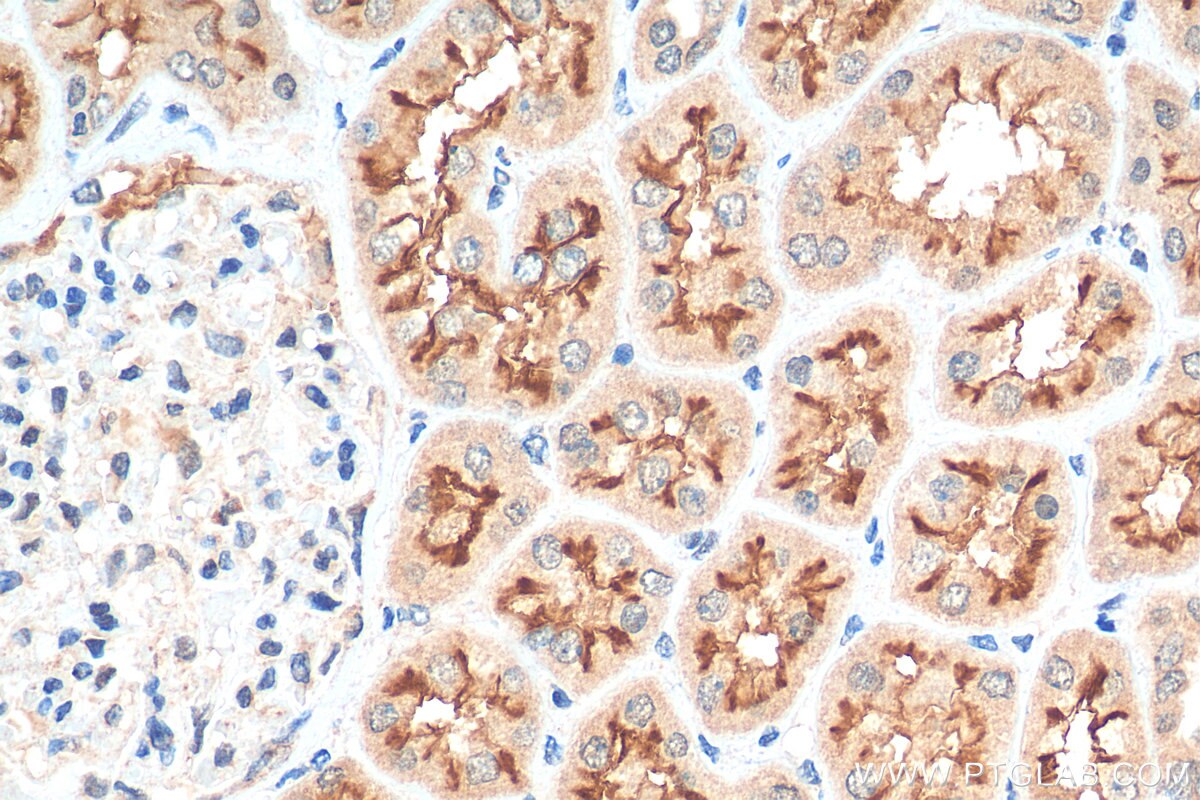Validation Data Gallery
Tested Applications
| Positive WB detected in | mouse small intestine tissue, mouse skeletal muscle tissue, human placenta tissue, mouse pancreas tissue, mouse testis tissue |
| Positive IP detected in | mouse skeletal muscle tissue |
| Positive IHC detected in | human kidney tissue Note: suggested antigen retrieval with TE buffer pH 9.0; (*) Alternatively, antigen retrieval may be performed with citrate buffer pH 6.0 |
Recommended dilution
| Application | Dilution |
|---|---|
| Western Blot (WB) | WB : 1:500-1:1000 |
| Immunoprecipitation (IP) | IP : 0.5-4.0 ug for 1.0-3.0 mg of total protein lysate |
| Immunohistochemistry (IHC) | IHC : 1:50-1:500 |
| It is recommended that this reagent should be titrated in each testing system to obtain optimal results. | |
| Sample-dependent, Check data in validation data gallery. | |
Published Applications
| KD/KO | See 1 publications below |
| WB | See 9 publications below |
Product Information
16331-1-AP targets OCTN2 in WB, IHC, IP, ELISA applications and shows reactivity with human, mouse, rat samples.
| Tested Reactivity | human, mouse, rat |
| Cited Reactivity | human, mouse, rat |
| Host / Isotype | Rabbit / IgG |
| Class | Polyclonal |
| Type | Antibody |
| Immunogen | OCTN2 fusion protein Ag9450 相同性解析による交差性が予測される生物種 |
| Full Name | solute carrier family 22 (organic cation/carnitine transporter), member 5 |
| Calculated molecular weight | 557 aa, 63 kDa |
| Observed molecular weight | 70-80 kDa |
| GenBank accession number | BC012325 |
| Gene Symbol | OCTN2 |
| Gene ID (NCBI) | 6584 |
| RRID | AB_2191406 |
| Conjugate | Unconjugated |
| Form | Liquid |
| Purification Method | Antigen affinity purification |
| UNIPROT ID | O76082 |
| Storage Buffer | PBS with 0.02% sodium azide and 50% glycerol , pH 7.3 |
| Storage Conditions | Store at -20°C. Stable for one year after shipment. Aliquoting is unnecessary for -20oC storage. |
Background Information
OCTN2 (Organic Cation/Carnitine Transporter 2), encoded by SLC22A5, is a ubiquitously expressed organic anion/cation transporter. OCTN2 plays a key role in absorption, tissue distribution and renal reabsorption of L-carnitine which is an essential cofactor in fat metabolism. Defects in the OCTN2 are responsible for primary carnitine deficiency. OCTN2 also transports some important respiratory medicines (such as tiotropium), and due to its expression in the lung, may influence the disposition and absorption of these medicines in the lung.
Protocols
| Product Specific Protocols | |
|---|---|
| WB protocol for OCTN2 antibody 16331-1-AP | Download protocol |
| IHC protocol for OCTN2 antibody 16331-1-AP | Download protocol |
| IP protocol for OCTN2 antibody 16331-1-AP | Download protocol |
| FC protocol for OCTN2 antibody 16331-1-AP | Download protocol |
| Standard Protocols | |
|---|---|
| Click here to view our Standard Protocols |
Publications
| Species | Application | Title |
|---|---|---|
Cell Metab Global Analysis of Plasma Lipids Identifies Liver-Derived Acylcarnitines as a Fuel Source for Brown Fat Thermogenesis. | ||
Food Funct Ferulic acid supplementation alleviates hyperuricemia in high-fructose/fat diet-fed rats via promoting uric acid excretion and mediating the gut microbiota | ||
Nutrients The Enhancement of Acylcarnitine Metabolism by 5-Heptadecylresorcinol in Brown Adipose Tissue Contributes to Improving Glucose and Lipid Levels in Aging Male Mice | ||
Front Pharmacol L-carnitine prevents lenvatinib-induced muscle toxicity without impairment of the anti-angiogenic efficacy | ||
J Neurochem Identification of drug transporters contributing to oxaliplatin-induced peripheral neuropathy.
| ||
Toxicol Lett Lenvatinib causes reduced expression of carnitine/organic cation transporter 2 and carnitine deficiency in the skeletal muscle of rats. |
